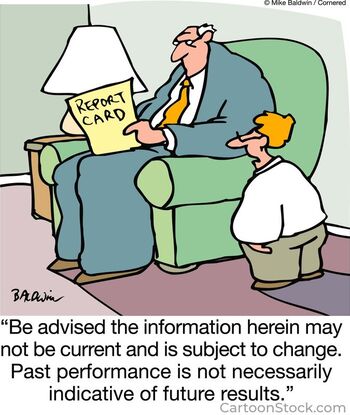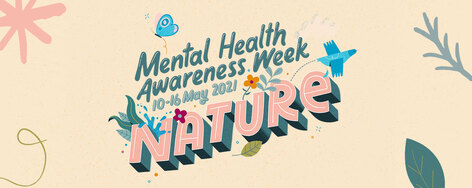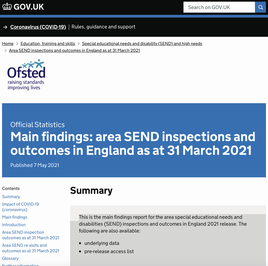|
Douglas Silas,
Specialist SEN Solicitor 10th May 2021
You can’t be good at everything...
Try as we might, we can never be good at everything we put our hand to. There will always be people who are better or worse than us at things and, so too, there will always be things that we are better or worse at than others. We just have to accept this fact, as to do otherwise will just infuriate us, since we will constantly be trying our best to achieve something all the time, but will then find, to our disappointment (and sometimes anger or despair), that somebody has got there before or after us. You will therefore always drive yourself crazy if you think like this - there is no clearer path to madness. So, through a process in life of 'hit and miss' we gradually need to work out what our strengths and weaknesses are and then play to our strengths and minimise our weaknesses. This doesn't mean that we should not still enjoy doing the things we may not be so good at, especially if they bring us pleasure, but we should recognise that we will probably not excel at them and then concentrate our time on things that we can do better. And the irony of all of this is often that, when other people tell us we cannot do something just because they may have seen us try and fail, perhaps a few times, it is sometimes the moment when we then become more determined to prove them wrong and usually ultimately succeed at the things they said we could never do! And a further irony is that we can then use the principles that we learn through these trials and tribulations of achieving this, to be successful at something else!! Yet, despite this, the initial principle usually remains the same - you cannot be good at everything and it is easier if we eventually accept this.
In this week's SEN Update, you will find sections entitled:
I know how busy everyone always is, so please feel free just to read the sections that are of interest to you or read everything; the choice is always yours.
Don’t forget, to ensure that you never miss one, you can get my SEN Updates personally by completing your email details above,
or by following me on one of the social media platforms I use (i.e. Twitter/Facebook). You can also share this SEN Update with others (please only do so if it may be relevant to them) by using one of the icons, usually to the right or at the bottom of this page.
MENTAL HEALTH AWARENESS WEEK
Thankfully, there was a fair bit of information I saw that I thought I would bring to people's attention this week. In fact, ironically, there was more this week than I could highlight in my first two sections, so I have put more links in the third section under 'Latest News Online'. In this first section, I want to highlight mental health again. I saw that it is 'Mental Health Awareness' this week. We are all very aware of the impact the pandemic this past year or so has had on the mental health of our children and young people. I then realised that, after looking, I had overlooked noting that 'Children's Mental Health Awareness' week was at the beginning of February! However, after some further research, I came across the website for the 'Mental Health Foundation' and there found a number of useful bits of information about 'Mental Health Awareness Week 2021', which the year's theme is 'Connect with Nature'. I found my way to a webpage where you can download a 'Connect with Nature School Pack', which says: "Connecting with nature in a great way you can help young people improve and maintain their mental health and wellbeing. Our ‘Mental Health in the Pandemic’ study found that going for walks outside was one of our top coping strategies and 45% of us said that being in green spaces was vital for looking after our mental health. The Mental Health Foundation’s Peer Education Project is a Secondary School-based project that gives older pupils the tools to deliver mental health lessons to younger pupils. The project has worked with pupils and staff from participating Secondary Schools to create the Connect with Nature School Pack, which is available for all schools across the UK. This school pack will provide the materials and resources needed to support pupils to connect with nature in a meaningful way. The pack is designed to be used in secondary schools, but it has lots of useful information for primary schools too. It is available in English and Welsh. The pack includes:
Hope this helps.
AREA SEND INSPECTIONS AND OUTCOMES
This week Ofsted also published their official statistics on 'Main findings: area SEND inspections and outcomes in England as at 31 March 2021'. Obviously, you can click on the link if you want to read everything for yourself (there are a number of charts), but they also provide a helpful summary of things, which says: "This is the main findings report for the area special educational needs and disabilities (SEND) inspections and outcomes in England 2021 release. The following are also available:
This release contains:
lmpact of COVID-19 (coronavirus) On 17 March 2020, all routine Ofsted inspections were suspended due to the COVID-19 pandemic. As a result, we suspended area SEND inspections and re-visits to local areas that had been required to produce a written statement of action (WSoA). We have included all reports published by 31 March 2021 in this release. Between October 2020 and March 2021, Ofsted and the Care Quality Commission (CQC) carried out a series of interim area SEND visits, visiting 10 local areas across the country. Participating local areas will remain anonymous, but learning has been shared in several thematic national reports. Main findings Since 2016, Ofsted and the CQC have carried out joint inspections of SEND arrangements in 116 of the 151 local areas across England. Just over half (59 out of 116) of the areas inspected have been required to produce and submit a WSoA to Her Majesty’s Chief Inspector (HMCI). This is an indication of significant weaknesses in the local areas’ SEND arrangements. The proportion of local areas required to produce a WSoA varies across the country. At a regional level, the proportion of local areas with a WSoA ranges from 1 in 4 in London, to more than 4 out of 5 in the East of England. Inspection outcomes have not varied much in the last 3 years. Relatively similar proportions of local areas have been required to produce a WSoA each year, from just over half to under two thirds. Twenty-one local areas have received a re-visit. Inspectors determined that 9 local areas were making sufficient progress in addressing all the significant weaknesses identified during their initial inspection."
LATEST NEWS ONLINE
And here are the news articles that I found of interest: Call for masks to remain compulsory in England’s schools Popularity at school linked to age position in class – study Secondary school pupils no longer advised to wear masks in class, Williamson confirms Autism more common in children in England than previously thought – study Pupils should keep wearing masks into the summer, Sage told ministers Covid: Poor pupils fall further behind in maths Infection rates dropping in schools: What does the latest data show
Again, aside from clicking on the relevant links for more information, I would also remind you of the very useful resources and information provided on the following websites:
- IPSEA - Council for Disabled Children - Contact - Scope - Special Needs Jungle I would also highlight again the fact that you can now get a digital copy of the magazine: Autism Eye which is very helpful to any parents or professionals involved with children/young people with Autism. Keep safe until next week. With best wishes Douglas
How useful do you find my SEN Updates?
Created with Quiz Maker
Comments are closed.
|
Archive
March 2022
|
© Douglas Silas Solicitors 2005-24
Authorised and Regulated by the Solicitors Regulation Authority (SRA no: 643718)
‘Douglas Silas Solicitors’ is the trading name of ‘Douglas Silas Solicitors Limited’, a limited company registered in England & Wales (company no: 10689991), whose registered office is Gable House, 239 Regents Park Road, Finchley, London, United Kingdom, N3 3LF. A list of members/directors may be inspected at our office.
Authorised and Regulated by the Solicitors Regulation Authority (SRA no: 643718)
‘Douglas Silas Solicitors’ is the trading name of ‘Douglas Silas Solicitors Limited’, a limited company registered in England & Wales (company no: 10689991), whose registered office is Gable House, 239 Regents Park Road, Finchley, London, United Kingdom, N3 3LF. A list of members/directors may be inspected at our office.






 RSS Feed
RSS Feed







